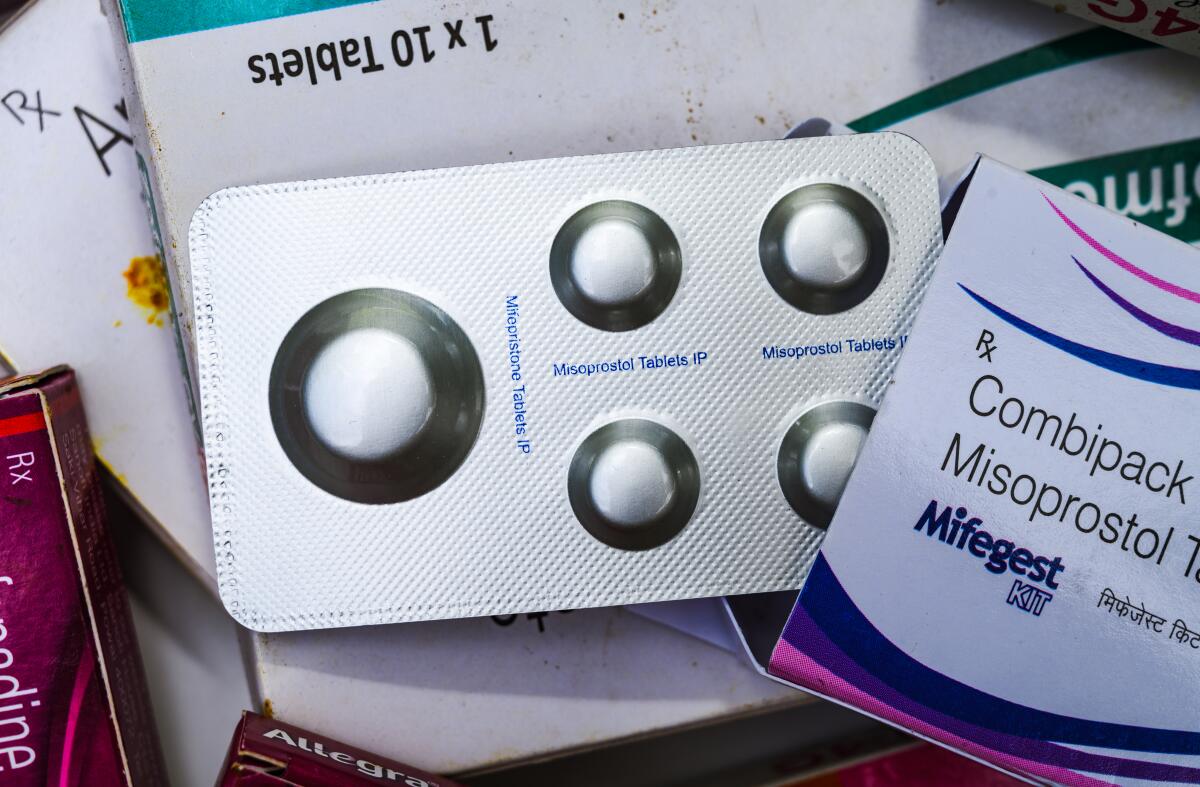Supreme Court justices skeptical of challenge to abortion pills
Abortion
David G. Savage March 26, 2024
The Supreme Court justices sounded skeptical Tuesday about imposing new limits on the dispensing of abortion medication through pharmacies or by mail.
The justices, both conservative and liberals, questioned why a group of antiabortion doctors have legal standing to challenge the dispensing rules set by the Food & Drug Administration. That issue, not the safety of mifepristone, dominated the two-hour argument likely a
telling
sign of what the justices thought about the case.
“The court should put an end to this case,” said Solicitor Gen. Elizabeth B. Prelogar, representing the Biden administration. A handful of doctors who oppose all abortions do not have the right to challenge the legal use of the drugs by millions of women, she argued.
Only Justice Samuel A. Alito
Jr.
directly disputed the suggestion that the anti-abortion claim should be thrown out. “Isn’t there anyone who could challenge this?” he asked.
Conservative Justices Neil M. Gorsuch and Amy Coney Barrett asked only procedural questions.
Barrett said the law already offers “conscience protections” to shield doctors who have moral objections to abortions from being required to perform them. She said she saw no evidence that those protections were not being honored.
The FDA approved the use of mifepristone in 2000 and said it was safe and effective when taken in combination with a second drug, misoprostol. More than five million women in the U.S. have used the pills since then, the FDA says, and they are now the most common method of abortion in this country. In 2016, the FDA loosened restrictions on how the drug may be prescribed.
The frequency of use has made the drugs a target for antiabortion activists. Two years ago, shortly after the court struck down the constitutional right to abortion, a group of antiabortion doctors filed a suit in Amarillo, Texas.
They sought a court order that would overturn the FDA’s approval of the drugs. And they sought out a judge who would look favorably on their claim. U.S. District Judge Matthew Kacsmaryk, a Trump appointee, who is the only federal judge based in Amarillo, “suspended”
the
FDA’s approval of mifepristone and gave the government seven days to appeal his decision.
The U.S. 5th Circuit Court of Appeals decided it was too late to reverse the FDA’s approval of the drug, but it agreed to set aside the regulations the FDA has adopted since 2016.
Biden administration lawyers appealed to the Supreme Court, and the justices voted to put the case on hold. Justices Alito and Clarence Thomas dissented.





